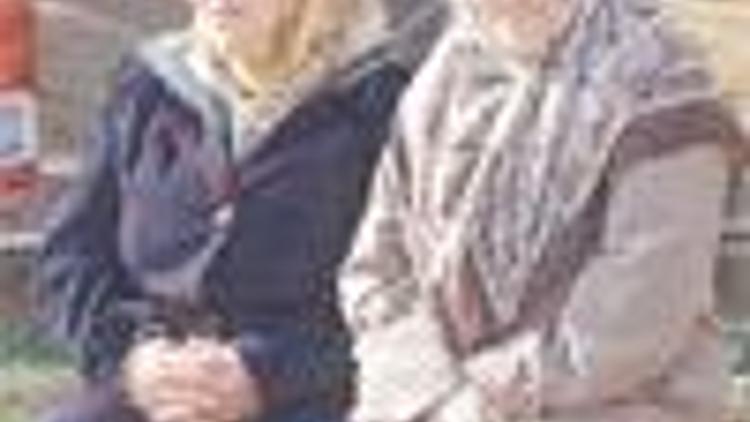by Kristen Stevens
Oluşturulma Tarihi: Ocak 03, 2009 00:005dk okuma
ISTANBUL - Contrary to most outsider views when visiting central Istanbul, Ankara or Antalya, an estimated 60 to 70 percent of women in Turkey cover their heads and bodies in observance of Islam. A respected health journal has published a small burst of research andcommentary on the health of this population - by Turkish scientists.
In recent years doctors and researchers have confronted an alarming consensus that billions of people, starting in infancy, are lacking Vitamin D and thus at risk for a host of health problems, including a shorter lifespan plagued with aches and pains. Women suffer from the deficiency more than men. People who are shielded from the sun in a nun’s habit or in frigid regions, studies show, are vitamin deficient. Likewise, recent research in Turkey published intrenationally has shown that observant Muslim women who cover their heads and/or bodies are more susceptible to bone weakness and other problems than women who do not wear religious covering.
Prominent columnist and academic from Istanbul University, Nuray Mert, told the Daily News in an interview published last weekend that it is difficult for anyone to give an honest assessment of the pressure on women to cover - or uncover - because of the highly politicized climate around the debate. While the subject here deals with science and health, the selection and funding of research is probably not immune to the divisiveness of public discourse. However recent research described in this article paints an interesting portrait of a public health risk that health officials in Turkey have not publicly addressed.
Studies are parts of a whole
In the May issue of the international medical journal "Rheumatology International", Nurettin Heybeli of the Trakya University School of Medicine in Turkey, wrote a letter to the editor after noticing two studies focusing on bone strength in covered women in Turkey a couple of months apart in the same journal. The former found decreased bone mineral density in female Muslim worshippers in Turkey. Having expected higher levels because she regarded worshipping as a kind of exercise, the study’s lead researcher, Dr. Sema Yılmaz from Başkent University, was surprised to see the lower levels.
"I thought that it might be related to decreased sun exposure," Heybeli told the Hürriyet Daily News & Economic Review. He noticed in a subsequent issue a study from Göztepe University in Istanbul supporting his hypothesis about the relationship between clothing-sun exposure and weaker bones. "This was an interesting coincidence," he added, "... and these studies are more powerful scientifically when regarded as parts of a whole."
According to the 2007 study by Alper Hayirlioglu, the second article to catch Heybeli’s eye, the veiled clothing that is required of observant Muslim women in Turkey may have an adverse effect on BMD. Because sun exposure is thought to play a key role in the development of bone strength, these women are at a distinct risk for bone weakness, the study says. There was no observed BMD loss in male individuals.
How bones weaken
Vitamin D is created by exposure of the skin to ultraviolet light, with the diet providing only a tiny proportion of the body's requirements. Depletion of vitamin D causes a reduction in the absorption of calcium leading to bone-density loss.
Insufficient sun exposure plays a key role in the development of both osteoporosis and osteomalacia. "The women in Turkey choosing veiled-type clothing may have a risk for less sun exposure," Hayirlioglu’s study noted. These findings support another study in Turkey of adolescent girls in Turkey in 2005.
Heybeli wrote in his letter to the editor that another study had shown the adverse effects of kneeling and floor activities for knee osteoarthritis. "As orthopedic surgeons from the same region and religion, we are aware of problems for the menisci and knee cartilage especially during hyperflexion and occasionally advise our patients to perform their worshipping in a sitting position."
Vitamin D deficiency is also frequent in Turkish immigrants in Germany, separate studies have found. One study funded by the German health ministry and public universities concluded that Turkish immigrants in Germany, especially veiled women, should be regarded as a risk population for skeletal and pain disorders that are caused by lack of exposure to sunlight. The studies conclude by recommending substantial use of calcium and vitamin D as substitutes for sun exposure. A study conducted by M. Holick and published in "The Lancet" journal noted that once vitamin D-sufficient veiled women were exposed to sunlight, their vitamin D levels increased by 40 percent in a single month.
Harm extends to children
People with pigmented skin also produce less vitamin D, and in pregnant women this can put their babies at risk of diseases such as rickets. Two studies in Melbourne published in the Medical Journal of Australia exposed vitamin D deficiency as a serious problem for migrants and their children. Obstetrician Sonia Grover took blood samples from 82 veiled and dark-skinned pregnant women at Royal Women's Hospital, finding that 66, or 80 percent, of the women lacked a sufficient amount of vitamin D.
In a separate study, pediatricians in a clinic in Australia reported that they had treated 55 children over four-and-a-half years for rickets, a disease that causes leg bowing, delayed walking and failure to thrive. When they went back to look at the vitamin D status of the mothers, they found that 81 percent were deficient. In nearly every case religious coverage was common in the mother’s country of origin: the Middle East, India, Pakistan and Africa.


